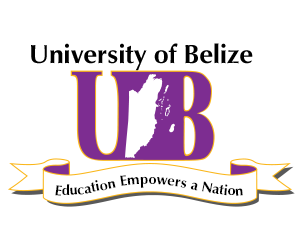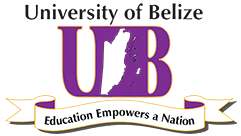- Version
- Download 387
- File Size 1.41 MB
- File Count 1
- Create Date October 1, 2018
- Last Updated October 1, 2018
UB Imprint Vol 36: Our Faculty: Transforming UB
Our Faculty: Transforming UB
Engineering Department Establishes New Advisory Councils
The University of Belize (UB) aims to become an internationally recognised centre for academic excellence. In this context, the Engineering Department from the Faculty of Science and Technology formed three Advisory Councils to give advice on the development and work of the Department. At its first joint meeting, held on August 28th, 2018, the Advisory Council outlined its overall strategy to strengthen existing programs and develop new ones and to guide the future direction of the Department, particularly in the light of potential opportunities and issues of contemporary relevance, employability, identity and positioning of the Department.
The Advisory Councils consist of representatives from industry and other stakeholders, who have special knowledge and expertise and who will assist in the planning, development and evaluation of proposed Bachelor of Science Degree programs in Engineering.
University programs, students and employers exist in a rapidly changing world and this pace dictates that the University must be relevant to national needs as well as assuring that graduates possess the required specialized knowledge and skills needed by employers. Simultaneously, programs must have international currency and provide an easy path for matriculation into advanced studies.
Professor Emeritus, Clement Sankat, UB’s President delivered the Keynote Address. The President’s presentation titled, “An Opportunity to Rethink our Engineering Programs at UB to meet National Development and Global Standards” was well received and gave the impetus needed for the Department’s advancement. In his presentation, the President indicated that this is an opportune time, despite all the challenges, to take a look at UB as a whole and to make it serve the national development needs and to meet global standards.
He continued by saying that “there is a need for market surveys to hear from the industries like those present... The University needs to produce graduates that have the ability to be internationally and regionally mobile and with the Advisory Council this can certainly be looked at”. He ended by challenging the Advisory Councils to “rethink our programs with external benchmarks of quality and international/regional accreditation as paramount”.
The Engineering Department aims to fulfil its mission of providing specialized higher education that forms the basis of quality training of technicians and engineers to meet the developmental needs of students and country. The University sees the formation of these new Advisory Councils as a positive step toward achieving this mission.
FST lecturers Conduct Water Quality and Dung Beetle Research in Billy Barquedier National Park
Faculty of Science & Technology Lecturers, Mr. Josue Ake, Ms. Karen Bautista and Dr. Latha Thomas completed a study on Water Quality and Dung Beetle in the Billy Barquedier National Park, Stann Creek District. The study was done in collaboration with Steadfast Tourism and Conservation Association (STACA), who manages the National Park.
This study was made possible by the Belize Nature Conservation Foundation (BNCF), who donated BZ$ 38,000 for the research. This study was a continuation of research undertaken by Mr. Ake and Ms. Bautista a year ago. The collaboration with STACA hopes to continue this year through training of park rangers on water quality and dung beetle collection methodology. This research and partnership helps to build STACA’s capacity in managing the National Park effectively.
UB Faculty Participates in Training Course on Microplastic Analysis Using Mirs Technique
Between August 13th – 17th, 2018, Dr. Abel Carrias of the Faculty of Science and Technology (FST) participated in a Training Course on Microplastic Analysis by using MIRS Technique carried out at the Laboratório de Radioecologia e Alterações Ambientais, Instituto de Fisica, Universidade Federal Fluminense – UFF in Niteroi - RJ – Brazil. The participation of Dr. Carrias in this meeting arose from his involvement in the International Atomic Energy Agency’s Technical Cooperation Program Regional project RLA7022 “Strengthening Regional Monitoring and Response for Sustainable Marine and Coastal Environments (ARCAL CXLV)”.
The training is part of the efforts to build human and laboratory capacity at UB through participation in national, regional and inter regional projects funded by the Technical Cooperation Program (TCP) of the International Atomic Energy Agency (IAEA). Currently, the University of Belize is executing National Project BZ7002 “Strengthening National Capacity for Measuring and Monitoring Marine Pollution and Studying the Effects of Ocean Acidification on Marine Ecosystems”.
The participation of Dr. Carrias in this meeting will contribute to the development of UB’s capacity to perform studies on microplastics and to assess its impact on Belize’s marine ecosystems. During the meeting, Dr. Carrias learned sampling protocols and methodologies for determining abundance, distribution and to perform physical and chemical characterization of microplastics. Significant outcomes of the training course include:
1. The development of a standardized sampling protocol that will be used regionally to perform microplastic studies.
2. Commitment from the project to fund the chemical characterization of 20 microplastic samples from Belize to be carried out at the Laboratório de Radioecologia e Alterações Ambientais, Instituto de Fisica, Universidade Federal Fluminense, using MIRS technique.
3. Submission of a list of sampling equipment valued at €6,000 euros for funding consideration under project RLA7022.
UB aims to work alongside the TCP to establish a long and fruitful relationship for building capacity at UB and of its stakeholders that will lead to meaningful scientific contributions for solving problems of national interest and significance.
UB Lecturers Publish Chapters in Bioelectricity Book
Lecturers in the Faculty of Science and Technology, Dr. Santos Chicas and Mr. Jair Valladarez recently published chapters in the book entitled, “Microbial Fuel Cells Technology for Bioelectricity.”
This chapter summarizes the general architecture of Plant Microbial Fuel Cells (MFC) with a focus on the utilized anodic and cathodic materials. An elaborate discussion on the potential of various plants and significance of microbial communities toward the generation of power has been provided. In addition, the recent improvements and limitations in Plant MFCs and also the futuristic explorations have been discussed. The book is available for purchase at https://link.springer.com/book/10.1007%2F978-3-319-92904-0.
UB Lecturer Mr. Leonard Mortis Represents UB in Technical Exchange on Disaster Management
Mr. Leonard Mortis, Chair of the Science Department in the Faculty of Science and Technology, participated in a Technical Exchange on Disaster Management in Baton Rouge, Louisiana, USA during July 24-26, 2018. This three-day event was sponsored by the United States Agency for International Development’s Office of Foreign Disaster Assistance in Latin America and the Caribbean Region (USAI/OFDA/LAC). This was in conjunction with the Regional Disaster Assistance Program (RDAP), whose principal objective is enhancing the capacities of institutions in an effort to reduce community risk through the strengthening of their resilience to disasters.
The program was facilitated by the Louisiana State University’s (LSU), Stephenson Disaster Management Institute (SDMI) and involved 14 participants from institutions of Higher Education from Latin America and the Caribbean.
The greatest takeaway from this experience, according to Mr. Mortis, was that Flagship/National Universities must lead in research and education in regards to disaster management. Universities through their programs and faculty must lend their academic expertise to the needs of the disaster management community such as NEMO, CEMO’s and other allied Ministries and NGO’s.





